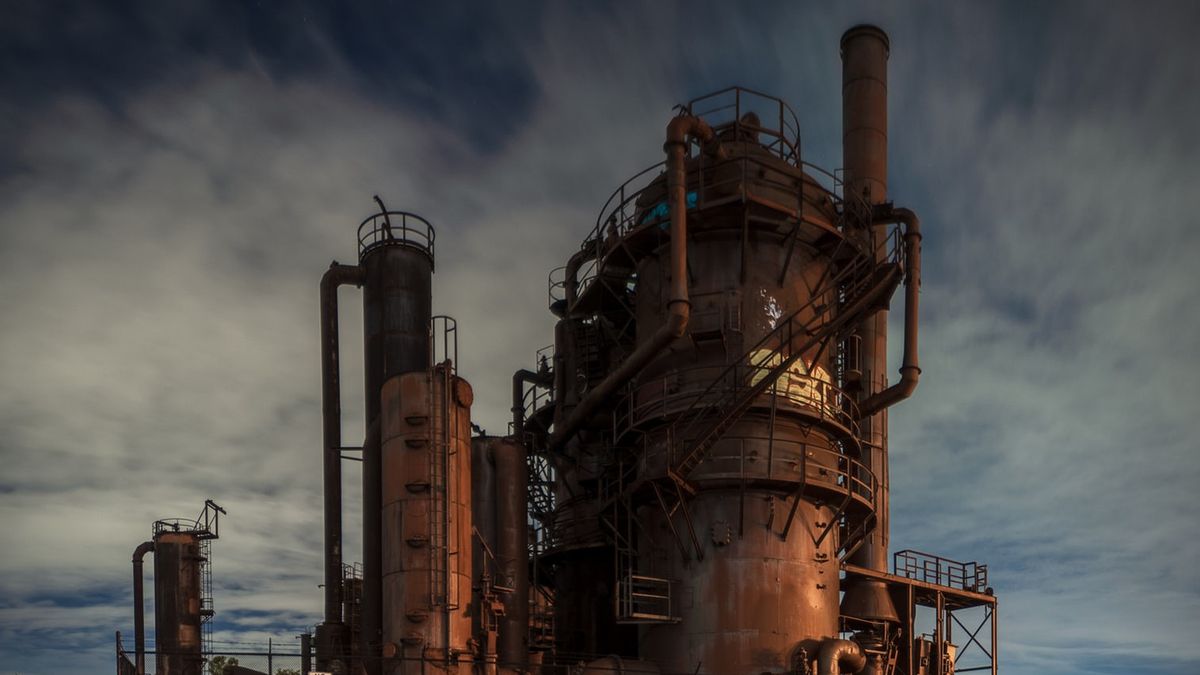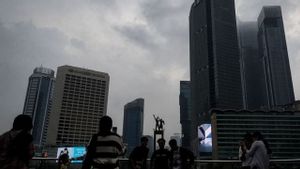JAKARTA - The Ministry of Industry is trying to boost national economic growth by increasing the competitiveness of the manufacturing industry. One of the current concerns of the government in spurring the performance of the non-oil and gas processing sector is maintaining the availability of raw materials and energy, including encouraging competitive prices.
This is in accordance with the demands of domestic industry players, for example for the price of industrial gas to be pegged at US $ 6 per Million Metric British Thermal Unit (MMBTU). The rate is actually in accordance with the mandate of Presidential Regulation Number 40 of 2016 concerning Natural Gas Pricing.
"The price of industrial gas must be competitive. Of course, with the decline in industrial gas prices, it will improve competitiveness and productivity in the national industrial sector, "said Minister of Industry (Menperin) Agus Gumiwang Kartasasmita in a statement received on Sunday, March 1.
The Minister of Industry is optimistic that if the industrial gas price can be reduced to US $ 6 per MMBTU, the manufacturing industry growth target of 5.3 percent in 2020 will be achieved.
"A large number of domestic manufacturing industries need gas, both as energy and as raw material. Therefore, the price of industrial gas in the country must be suppressed in order to reduce production costs which support increased competitiveness, "he said.
Several factors have become the background for the government to drive down industrial gas prices, including production costs, product selling prices, and market demand. For industries that use gas as raw material, such as the upstream textile industry, upstream petrochemical industry, fertilizer industry, ceramic and glass industry, gas prices are part of a fairly large cost structure.
"For example, in the upstream textile industry where the gas price is 25 percent of the cost structure, the gas price which is around 9-12 US dollars per MMBTU currently causes competitiveness to be weak," said Agus.
For the upstream industrial sector, due to high industrial gas prices, production utilization tends to be low at around 45 percent, so that most of the upstream textile and textile product (TPT) industries reduce their production capacity.
In the petrochemical industry, gas prices affect 70 percent of the cost structure. In addition, the absence of supply of raw materials for ethylene, propylene, polyethylene, polypropylene, DME and their derivative industries from within the country has an effect on the slow downstream growth of methanol.
From the trade aspect, this has resulted in high imports of methanol raw materials from abroad. This could also lead to a loss of potential employment from the growth of downstream industries, including plastics, cables, and electronic and automotive components.
In the ceramic and glass industry sector, the higher price of natural gas in Indonesia has resulted in lower competitiveness and increased imports of ceramics and glass. The industrial gas price for this sector ranges from US $ 7.98-10.28 per MMBTU.
According to the Minister of Industry, the decline in gas prices also has multiple effects, such as increasing production output, increasing GDP, increasing profits in industries that use gas as raw material, and increasing the number of workers.
"It can be concluded, the smaller the gas price, the greater the benefits received by all parties," said Agus.
TM Zakir Machmud, a senior researcher at the Institute for Economic and Community Research, Faculty of Economics and Business, University of Indonesia, stated that the reduction in industrial gas prices in the short term is considered to reduce state revenues. However, in the long term, it is believed that it will provide greater benefits for the country, such as from additional taxes as the industrial sector grows.
“Non-competitive input prices are a major issue in the manufacturing industry. One of the inputs is energy, including industrial gas, ”he said.
According to Zakir, uncompetitive energy prices will make the prices of industrial products unable to compete. Efforts to reduce industrial gas prices are made so that the products produced by the domestic manufacturing industry can be competitive, including when they have to compete with imported products.
"Demand from the industrial side is like this, if you want to encourage the industry, don't pull it in front, but pull it behind. If the input price is cheap, the industry will move. From there, additional tax revenues will be obtained, "he explained.
Zakir said that the decline in gas prices is expected to increase transactions as the prices for industrial finished products fall. Thus, the revenue received by the state through Value Added Tax (VAT) is higher.
If there are still companies that do not want to reduce the price of their products even though the price of gas has fallen, the corporate entity's income tax payments (PPh) must increase because the margins are high.
"So, there is no need to worry. In the end, you can still be arrested with taxes. It can be through corporate income tax, VAT, or also through the income tax of people who work there," he said.
The English, Chinese, Japanese, Arabic, and French versions are automatically generated by the AI. So there may still be inaccuracies in translating, please always see Indonesian as our main language. (system supported by DigitalSiber.id)













